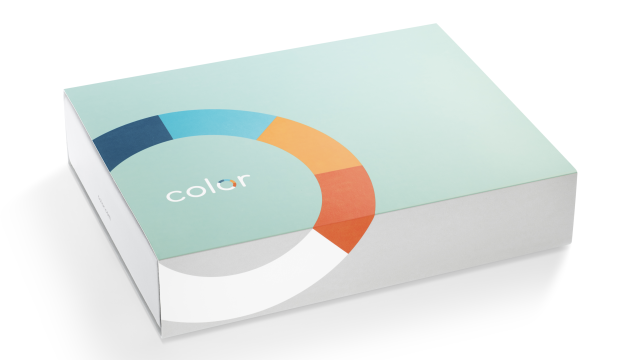Earlier this month, when consumer genetic testing giant 23andMe announced plans to roll out the first consumer test for breast cancer risk, the news attracted some hefty criticism from the medical community. Sure, consumer DNA tests allow people to find out information about their health without a potentially pricey and inconvenient visit to the doctor. But without a doctor to help parse the results, some worry that at-home genetic tests may be misleading, inciting needless anxiety or a false sense of security.
There is, though, a growing market for the in-between: Low-cost, at-home genetic tests that require a doctor to order them. This week, the genomics company Color rolled out their latest offering in this realm, a $US249 ($323) test for hereditary heart health. The test analyses 30 genes to look for risk of a wide range of hereditary heart conditions, including cardiac arrhythmias, cardiomyopathies, and arteriopathies. Mutations in those 30 genes can lead to serious conditions. Like the rest of Color’s genetic tests, the idea is that a customer would work with their doctor to come up with a plan to detect conditions early and prevent serious medical problems.
Color also offers tests for hereditary cancers and high cholesterol. All of the genes it looks at were identified by the American College of Medical Genetics and Genomics as “medically actionable.” Similarly, Veritas offers a BRCA test for $US199 ($258) that must be ordered by a doctor, though Veritas has doctors of its own on hand to fill that roll. Invitae also markets its tests to both doctors and patients, and allows for some of them to be taken at home once ordered by a doctor.
Most health conditions can’t be boiled down to whether or not you have one single genetic variation. Take 23andMe’s BRCA test. The test looks for only three of the more than 1,000 known BRCA mutations, and looks at mutations most common among people of Ashkenazi Jewish descent. Not to mention that, even with BRCA genes, in which having a certain mutation means an unusually high risk of developing breast or ovarian cancer, other factors like a person’s lifestyle also play a role in whether they will ultimately wind up the disease. How all of that translates to practical health information, though, can be hard to wrap your head around without the help of an expert to parse the details.
For that reason, we may see a boom in tests like Color, which offer stepped-down prices for genetic testing alongside physician expertise.
